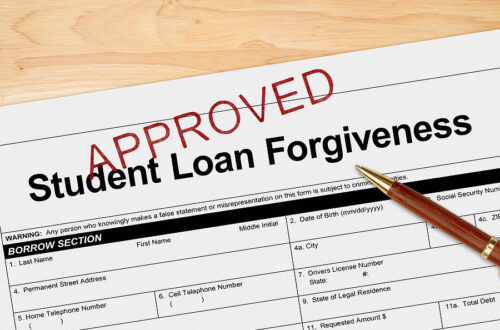Bankruptcy offers people who are overwhelmed by debt an opportunity for a financial fresh start, either through liquidation (Chapter 7 bankruptcy) or reorganization (Chapter 13 bankruptcy). However, not all debts are eligible for a bankruptcy discharge. In our latest blog, we delve into what kind of debts are not alleviated when you file for bankruptcy, and what kind of debts can be more difficult to discharge.
Child Support and Alimony
Child support and alimony are debts that will stay with the filer even after a bankruptcy discharge is issued. The reason for this classification as nondischargeable debts has to do with public policy. These debts involve obligations to support dependents, and the court views these as important, which is why they must be fulfilled to provide for the well-being of the filer’s dependents.
Debts Incurred through Wrongdoing
Another category of debt non-dischargeable in bankruptcy are debts incurred through fraud or deceit. Additionally, any debts that caused willful or malicious injury to another individual or another piece of property, including fines and penalties imposed by government agencies, will stay with the filer. Since these debts involve actions that involve moral turpitude or criminal conduct, courts view these debts as ones that should not be discharged. As a matter of public policy, the filer must be held accountable for his or actions that caused these debts.
Most Tax Debt
Tax debts are another category of debt more difficult to discharge in a bankruptcy case. These debts are viewed as priority debts, which give them an edge over other debts in a bankruptcy case because they are used to fund government services. As a matter of public interest, the law dictates that these debts should be paid.
Unlike other nondischargeable debts, exceptions do exist to the rule. If a tax debt is from income tax and is older than three years old, it may be discharged. A bankruptcy attorney should be consulted if a filer is attempting to discharge an old tax debt, however, as the process can be complicated.
Student Loan Debt
Most types of student loan debt are non-dischargeable in a bankruptcy case. The reason for this has to do with a matter of public policy. In the past, bankruptcy courts have viewed student loans as an investment in the filer’s future earning potential, and as a result, it is seen to be in the public’s interest to have these loans repaid in full.
However, student loan debts may be discharged if the borrower can, in a separate legal proceeding, show that he or she would face undue hardship if forced to pay the student loans back. This test can be a hard one to meet, and the standard is applied differently from court to court. Here is how to discharge student loan debt in bankruptcy.
If you have questions on this topic or are in financial crisis and considering filing for bankruptcy, contact an experienced Miami bankruptcy attorney who can advise you of all of your options. As an experienced CPA as well as a proven bankruptcy lawyer, Timothy Kingcade knows how to help clients take full advantage of the bankruptcy laws to protect their assets and get successful results. Since 1996 Kingcade Garcia McMaken has been helping people from all walks of life build a better tomorrow. Our attorneys help thousands of people every year take advantage of their rights under bankruptcy protection to restart, rebuild and recover. The day you hire our firm, we will contact your creditors to stop the harassment. You can also find useful consumer information on the Kingcade Garcia McMaken website at www.miamibankruptcy.com.



